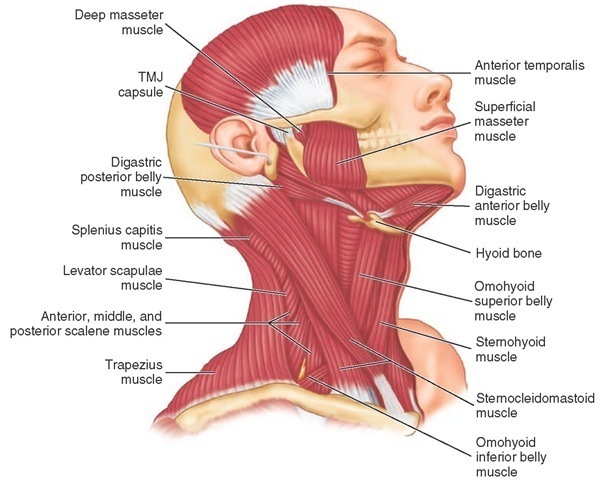SYMPTOMS
The temporomandibular joint is the joint located right in front of your ears where the jaw bone connects with the cheek bone on your skull. When this joint becomes inflamed (through stress, injury, or damage) symptoms can arise leading to a localized pain disorder called Temporomandibular Joint Disorder (TMJD). Other names for this pain include TMD, TMJ Syndrome, or TMJ Dysfunction.
What are the Symptoms and Signs of TMJD?
So with all the possible causes of TMJ discomfort, how do you actually know if you suffer from TMJD? Here are some signs and symptoms of temporomandibular joint (TMJ) disorder.
- Pain or tenderness where the temporomandibular joint meets the skull
- Popping or clicking of the jaw
- Difficulty chewing
- Shoulder pain
- Pain that feels like it could be a toothache
- Headaches, including migraines
- Blurred vision
- Tight, stiff, or sore jaw or neck muscles
- Muscle spasms in the jaw
- Facial, mouth, jaw, or cheek pain
- Chin numbness or tingling
- Pain at the base of the tongue
- Ear pain or sounds of cracking
- Ringing, popping sounds or a sense of fullness in the ears
- Swelling or a painful lump in the temple area
- Locking or dislocation of the jaw, commonly referred to as lockjaw
- Dizziness or vertigo
What Causes TMJD?
The temporomandibular joint can become inflamed for a number of reasons, whether it’s from an injury that occurred years ago or from recent stresses that arise from work or life in general.
The effects of an inflamed temporomandibular joint can manifest themselves in a variety of symptoms found across the entire body. Due to this diversity of symptoms, there is a lack of clarity in the medical and dental communities regarding what directly causes TMJD. While more obvious causes of TMJ Disorder are due to injury or misalignment of the teeth or jaw, poor posture and stress are major contributors that the Dental community can overlook.
Here is a list of other possible causes of TMJD pain:
- Misalignment or trauma to the teeth or jaw
- Excessive teeth grinding or jaw clenching, affecting the muscles of the back, neck, head, shoulders and jaw… which in turn creates pain.
- Poor posture
- Stress or anxiety
- Arthritis and other inflammatory musculoskeletal disorders
- Orthodontic braces
- Excessive gum chewing



